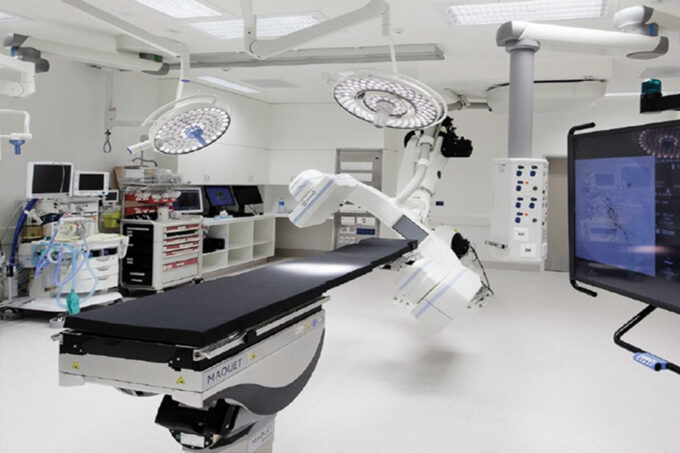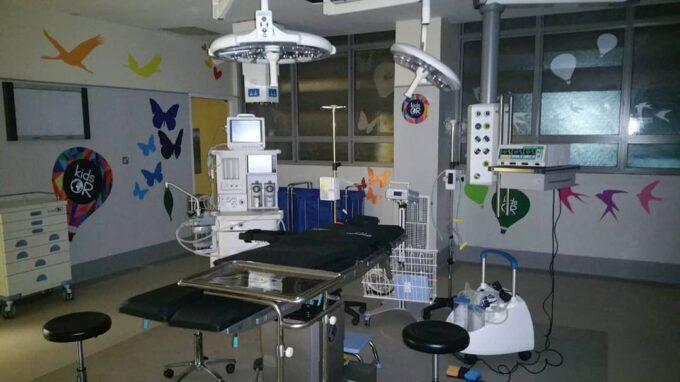What’s one of the most important businesses that need to run in top shape at all times? Hospitals, of course! It’s no understatement to say that life and death hang in the balance if they ever drop the ball.
That said, many don’t know what operations go on in a hospital beside the medical side of things. What groups keep hospitals running 24/7, 365 days a year?
Well, we’ve got the answer for you. It’s time to take a look at hospital procurement services and how they help hospitals achieve the best performance possible! So, without further ado, let’s dive in and take a closer look.
What are Hospital Procurement Services?

Procurement services refer to the methods through which a business acquires the goods and services it needs. These methods place an emphasis on getting the most cost-effective equipment while also making sure the products are still high-quality. This includes equipment like wheelchairs, pacemakers, surgical gowns, CAT scanners, and more.
In an average situation, it’s the hospital that handles the bulk purchases of medical supplies they need. However, there has been a noticeable shift towards hospitals hiring procurement service companies to handle this process for them.
Within this process, the service company looks at the usage of the equipment they’ve purchased over a yearly basis. Then, they factor in price and quality changes with all equipment. Finally, they contrast it against whether all the equipment they do have fulfills its purpose.
The idea is to balance top-of-the-line gear to save lives while making sure the hospital keeps its head above water financially speaking.
Enter the VAC

Once this data collection and assessment is complete, the service company takes it to the VAC (Values Analysis Committee). They are also sometimes referred to as VAT’s (Values Analysis Teams). VAC’s are made up of doctors, nurses, members of the board, or anyone tied into the financial stake of the hospital (like shareholders and the CEO).
When the VAC convenes, they deliver a judgment off of two factors. These consist of the hospital’s budget “health” and how well a variety of product worked for the hospital in the past. For instance, if the surgery gowns they ordered kept causing patients to break out in rashes, they’ll want to switch gears.
It’s important to understand that VAC’s do not determine product based on how safe it is. They also don’t act as a “checks and balances” of sorts to FDA approval. Since not everyone on a VAC possesses the medical knowledge required to make such judgments, all a VAC can rule on is budget management.
How Appealing to the VAC Works

Are you the sales for the service company? Then, the main function of hospital procurement is getting an appeal to sell your proposal to the VAC to put in their hospital. To get these sales, you first need to collect information on what will give your proposal the best chance of success.
For example, let’s say you’re trying to make an argument for why hospitals should stock up on the defibrillators your service company produces. Finding studies that point to a nationwide rise in heart problems would work as beneficial data to making your sale.
Another point you’ll want to consider is sales points. Bringing up what different vendors sell their wares for and how your budget plan offers some sort of advantage is another killer point for netting the sale.
If your plan involves a product involved in a trial run, you’ve got more of an uphill battle. After all, you’re trying to sell people on a product with no history of success. If this is the case, try offering a price reduction based on the product’s status.
Why Do Hospitals Need Procurement Services?

So besides choosing what equipment goes into hospitals, how do procurement services help hospitals out? One way this happens is that it reduces the chance of making spending decisions based on emotional choices.
Consider the high-paced and stressful environment hospitals constantly operate under. It’s easy for the hospital to make a snap decision that puts them in a financial position that compromises them later on. Accidental duplicate orders or other such phenomena can prove commonplace if you lack a solid procurement service plan.
Plus, an objective look also gets the hospital out of not seeing anything but the budget. Focusing too hard on price alone could also result in you ending up with inferior products that don’t help anyone.
The hospital procurement process helps counter this. It does so by making budgetary choices based on hard data about the cost and use of various medical devices. Another bonus is that this very data can also prove useful within other functions of the hospital.
For example, a procurement service could implement inventory tracking on your supplies. This allows the employees of the hospital can also use that data to delineate or prescribe those supplies to patients.
The Benefits Continue

By a similar token, the procurement process gives results hospitals can measure to judge their effectiveness. This way, they can ensure each product gets used in its intended manner and isn’t allocated where it’s not needed.
Another reason hospitals need these services is that medical supplies make up a substantial amount of their budget: around 20%, to be exact. Without this balance, the whole operation starts to crumble out from underneath itself.
Finally, procurement services enable hospitals to spend more time focusing on their work of saving lives and treating patients. This is because they no longer have to split their time between all their other responsibilities and handling procurement themselves.
Obtaining the Best Value

And that’s all there is to it! Now that you know all about what hospital procurement services are, you’ve got all the info you need on how hospitals manage their budget and get their supplies! For more details on hospital procurement services, check out the healthcare page at tradogram.com and sign up for a free demo. And if you want to learn more about the business functions of the medical industry, be sure to check out the other articles on our blog!









